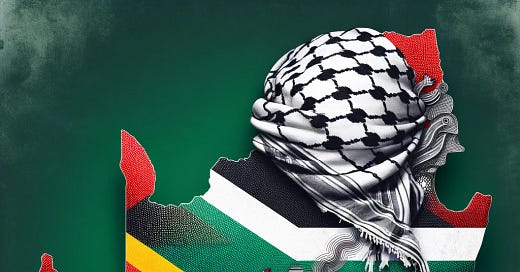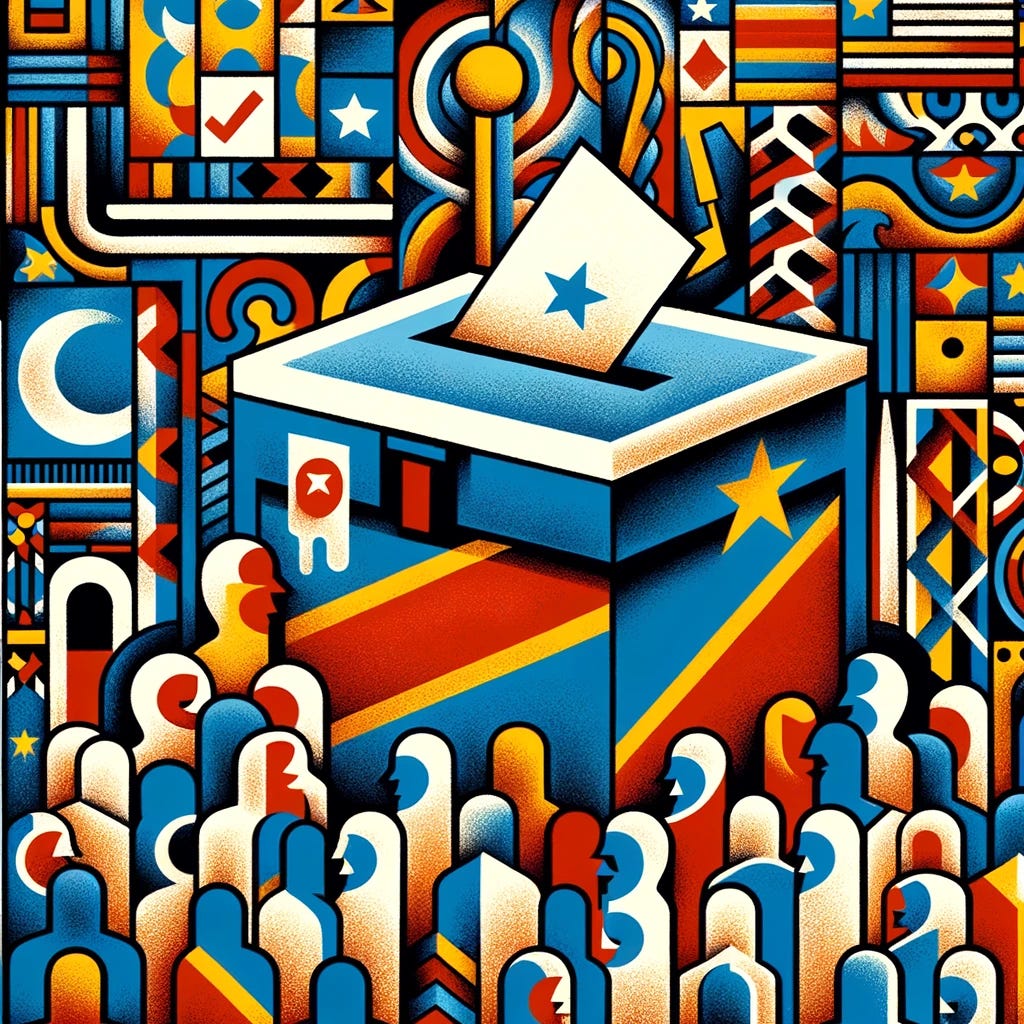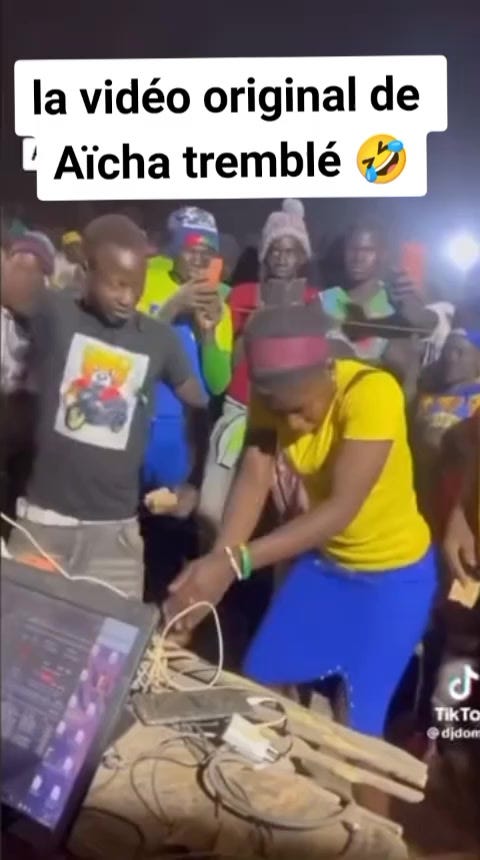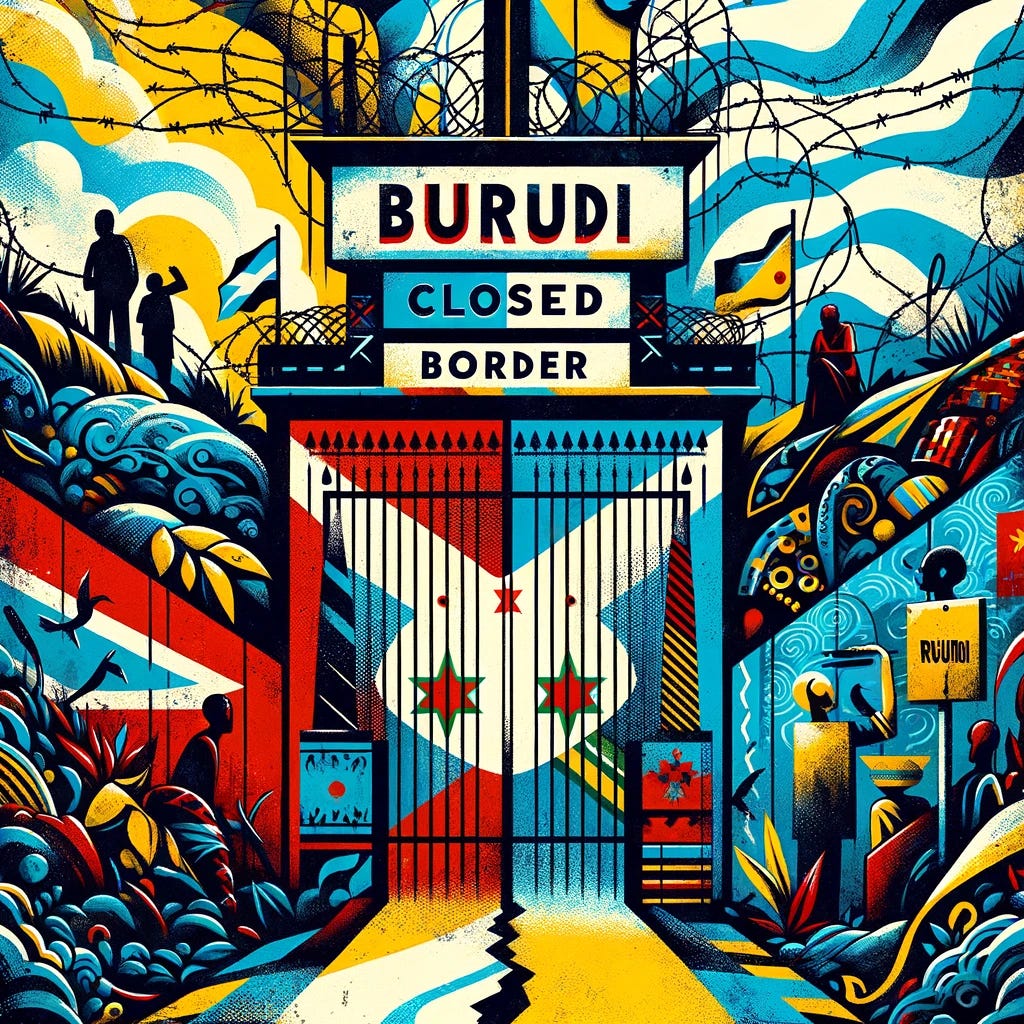🔅 South Africa vs Israel, Congo's Election Results, Viral Dance Star Aïcha.
Plus: Burundi-Rwanda Tensions, Ivory Coast's Afcon Investment.

Photo of the Day
Money Matters: Year-to-Date*
Based on your survey feedback, 'Money Matters' will now exclusively feature on Mondays.
🟢 Nigerian SE: 83,042.96 (+11.06%)
🔴 Johannesburg SE: 74,240.76 (-3.45%)
🔴 Ghana SE: 3,127.31 (-0.09%)
🟢 Nairobi SE: 92.80 (+0.75%)
🟢 US S&P 500: 4,783.83 (+0.81%)
🔴 Shanghai Composite: 2,881.98 (-3.05%)
*Data accurate as of the close of markets across the continent
Brief & Bright: Africa's Top Five
The ICJ's Legal Drama: Israel vs. South Africa in a Blockbuster Case
It's Israel vs. South Africa at the International Court of Justice (ICJ) in a heavyweight bout over the "crime of all crimes": genocide. This is about accusations that Israel, in its war in Gaza, tried to wipe out a whole population. Both sides are playing to the gallery with high emotions. The stats are grim: 1,300 people (mostly civilians) were killed in the Hamas attack on Israel, and over 23,350 (mostly civilians and mostly children and women) in Israeli retaliatory strikes. South Africa is bringing the heat with a laundry list of allegations against Israel, from random civilian killings to total destruction in Gaza. Their argument? Israel's actions are a threat to Palestinian life itself. Now, proving genocide? That's like climbing Everest without oxygen. You need solid proof of Israel's intent against the entire population of Palestinians, and that's a tough nut to crack. This is about proving a deliberate attempt to erase a people. The ICJ's got its work cut out, and these kinds of legal proceedings can drag on for years. Meanwhile, South Africa is playing its hand, asking the ICJ for "provisional measures" to halt Israel's military actions in Gaza.
Congo's Election: A Win for Tshisekedi Amidst Opposition Outcry
The Democratic Republic of Congo just wrapped up its presidential elections, and the Constitutional Court, playing the role of the final referee, has declared President Felix Tshisekedi the winner for another five-year term. This decision comes despite a chorus of "Hey, that's not fair!" from independent observers and opposition candidates, who say they spotted a myriad of irregularities. But only one of the 18 opposition candidates, Theodore Ngoyi (who, by the way, scored 0.02% of the vote vs Tshisekedi's 73%), bothered to challenge the results in court. The rest, including runner-up Moise Katumbi, are giving the court the cold shoulder, saying they don't trust the system. Trust issues. Opposition candidate Martin Fayulu didn't mince words: "We did not witness credible elections", although the court declared that even with the alleged hiccups, Tshisekedi's win is as clear as a sunny day in Kinshasa.
Aïcha's Dance: From Village Life to Viral Stardom
In a small village in western Burkina Faso, 18-year-old Aïcha Bonou N’Donkie's day started like any other: gathering firewood, cooking for her family, and selling homegrown peanuts at the market. But that February evening, she found herself at an impromptu concert by one of her favourite DJs, Dominique Leosgo, aka DJ Domi. As the beats pulsed, Aïcha's world transformed. Urged on by DJ Domi's cry, "Aïcha, tremblé!" (Aïcha, shake!), she let the rhythm take over, her dance moves becoming an embodiment of sheer joy and freedom. Little did she know, her spirited shoulder shimmies, caught in a bright yellow T-shirt and blue skirt, would catapult her to international fame. Leosgo's TikTok clips of her dance went viral, racking up over 8 million views. Suddenly, Aïcha and DJ Domi were more than local talents; they were global sensations. Their music video exploded with over 11 million views in four months, ranking among Burkina Faso's most significant hits. Their newfound fame took them on a whirlwind tour from Chad to the Ivory Coast and even France, rubbing shoulders with diplomats and journalists. With their second music video just released, directed by one of Burkina Faso's top filmmakers, Aïcha's impromptu dance has spun a narrative of unexpected fame, showcasing the power of social media to turn a simple village evening into a worldwide celebration.
Burundi-Rwanda Tensions Escalate: Diplomatic Ties Suspended, Border Closed
Burundi's Internal Affairs Minister Martin Niteretse announced a drastic severance of diplomatic relations with neighbouring Rwanda, citing Rwanda's alleged backing of the Burundian rebel group RED-Tabara. This dramatic move includes shutting their shared border and expelling Rwandan citizens from Burundi. Niteretse accused Rwandan President Paul Kagame of supporting elements destabilizing Burundi, labelling him a "bad neighbour" and demanding a change in his stance. This suspension follows Burundian President Évariste Ndayishimiye's allegations last month against Rwanda for aiding RED-Tabara, which Burundi deems a terrorist organization. The group claimed a recent attack resulting in security official casualties, which the Burundian government says also killed several civilians. Rwanda, denying these accusations, expressed regret over Burundi's decision, highlighting its breach of East African Community principles. This is not the first border closure between the two nations; similar measures were taken in 2015 amid political turmoil in Burundi. The RED-Tabara, active since 2011 and blamed for attacks in Burundi since 2015, reportedly operates from eastern Congo, adding a complex layer to the regional dynamics.
Ivory Coast's $1 Billion Gamble: Afcon 2024 and Beyond

Welcome to the big leagues, Ivory Coast! Hosting the 2024 Africa Cup of Nations (Afcon) isn't just about football; it's a $1 billion investment in their comeback story since the civil war ended in 2011. They're pulling out all the stops with four brand new stadiums, two renovations, and a makeover for everything from airports to hotels in five cities. This isn't Monopoly cash we're dealing with. The government's splurging is part of a massive $3.5 billion loan from the IMF. For a country ranked 138th out of 190 in riches, this is high-stakes stuff. They're growing fast, though, with an average of 8% growth since 2010 under President Alassane Ouattara, who knows a thing or two about finance (hint: he's an ex-IMF employee). But is this a masterstroke or a massive gamble? Some are worried these shiny new infrastructures could turn into 'white elephants' - you know, those costly things that look pretty but don't do much at the end of the day. But others say that this is the country's opportunity to turn itself into a hosting hotspot for regional events, especially for neighbours who can't get their stadiums up to snuff. Economically, Ivory Coast is sprinting to catch up with Ghana and even eyeing to overtake it. They're already a powerhouse in coffee and cocoa, so why not football and infrastructure? Afcon began on Saturday and ends on February 11.
Food for Thought
“A bird does not change its feathers because the weather is bad."
— Kenyan Proverb








